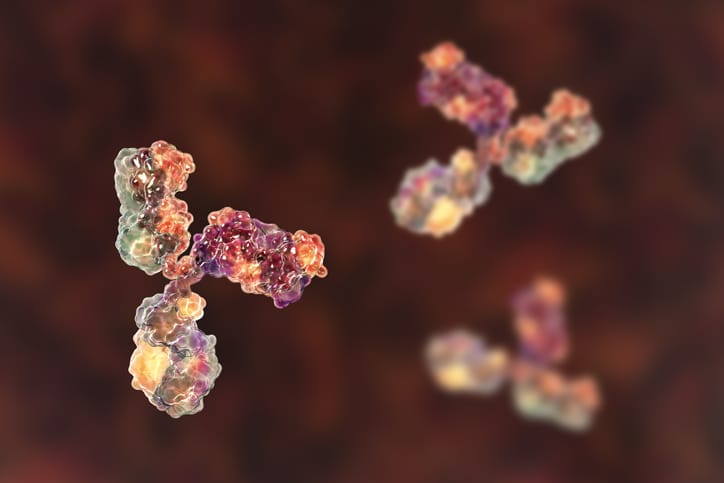
So what is a monoclonal antibody treatment, how do they work, and what do we need to know? There is so much new information every day that it’s challenging to stay on top of things. Here is some information to familiarize yourself with the treatment and answer some of your frequently asked questions.
If you are interested in receiving a COVID-19 antibody treatment, read more about eligibility and how to schedule an appointment HERE.
Monoclonal Antibodies and Our Immune System
Antibodies and Our Immune System
One way our bodies fight off infection is by making large numbers of antibodies. Antibodies circulate throughout our bodies until they find the infection. Then they force other parts of our immune systems to destroy the cells that carry the infection.
So where do monoclonal antibodies come into play?
COVID-19 researchers throughout the world have been working to design antibodies that specifically target the virus that causes COVID-19. This has been done many times before to treat other infections such as those found on cancer cells. Researchers were able to make many copies of that antibody that helps treat COVID-19 in the lab. These are known as monoclonal antibodies.
How do monoclonal antibodies treat COVID-19?
The monoclonal antibodies that have been developed to treat COVID-19 act like immunotherapy. They make the immune system respond better to allow the body to find and attack COVID-19 more effectively.
Basically, these monoclonal antibodies are man-made proteins that act like human antibodies in the immune system.
Who benefits from monoclonal antibody treatment?
Clinical trials for monoclonal antibody treatment for COVID-19 studied adult patients with mild to moderate COVID-19 who were not hospitalized. Extensive research has shown decreased hospitalizations and ER visits in patients that received the treatment. These studies also show that receiving the treatment decreased the patient’s viral load.
Possible Side Effects
Monoclonal antibodies are given through an IV (injected into a vein) in a clinical setting. The antibodies themselves are proteins, so giving them can cause side effects in some people. This is more common while the drug is first being given.
Possible side effects can include:
Fever
Chills
Weakness
Headache
Nausea
Vomiting
Diarrhea
Low blood pressure
Rashes
When we compare these side effects to the risks associated with COVID-19 cases, the benefits outweigh the risks for most patients. But they can still cause problems for some people. It is important that each individual patient discuss these risks and benefits with their provider.
How can I receive this treatment?
To read more about eligibility criteria and learn how to schedule an appointment, please read our FAQ page.






